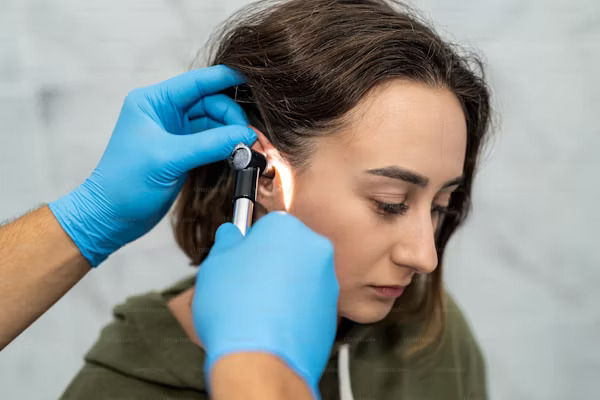 Hearing health is often overlooked, but it plays a critical role in maintaining quality of life, especially as we age. If you're concerned about earwax prevention, hearing tests for seniors, or need a hearing aid consultation, this guide will provide you with key insights to take control of your hearing health and make informed decisions about maintaining or improving your hearing.
Hearing health is often overlooked, but it plays a critical role in maintaining quality of life, especially as we age. If you're concerned about earwax prevention, hearing tests for seniors, or need a hearing aid consultation, this guide will provide you with key insights to take control of your hearing health and make informed decisions about maintaining or improving your hearing.
1. Earwax Prevention: Protect Your Hearing Naturally
Earwax is essential for protecting the ear canal from dirt, dust, and bacteria. However, excessive earwax buildup can lead to discomfort, hearing loss, and infections. Earwax prevention is an essential aspect of maintaining healthy hearing.
- Avoid Cotton Swabs: Despite common use, cotton swabs can push earwax deeper into the ear canal, potentially causing blockages.
- Regular Cleaning: Cleaning the outer ear with a damp cloth is sufficient for most people. For excess earwax, a healthcare professional can recommend safe removal methods.
- Hydration and Diet: Drinking plenty of water and maintaining a balanced diet can help prevent earwax from becoming too dry and impacted.
Preventing earwax buildup is a simple yet crucial step in ensuring your ears remain healthy and functional.
2. Hearing Test for Seniors: Early Detection is Key
As we age, hearing can naturally decline, often without us realizing it. Regular hearing test for seniors are essential to detect early signs of hearing loss and to prevent further complications. Early detection helps seniors take proactive steps to manage their hearing health.
- Signs of Hearing Loss in Seniors: Difficulty understanding speech, asking people to repeat themselves, or turning up the volume on the TV are common signs.
- What to Expect During a Hearing Test: A hearing test typically involves listening to different sounds through headphones, followed by a series of questions to determine how well you hear various pitches and volumes.
- Benefits of Early Testing: Identifying hearing issues early allows for effective management, such as using hearing aids or making lifestyle changes to improve communication.
Seniors should prioritize regular hearing tests to maintain their independence and overall well-being.
3. Hearing Aid Consultation: Finding the Right Solution for You
For those experiencing hearing loss, hearing aid consultations are invaluable. These consultations provide personalized advice on the best hearing aids suited to your needs. Whether you're struggling with mild or severe hearing loss, consulting with an audiologist ensures you receive the right fit and features.
- Customized Solutions: During a hearing aid consultation, an audiologist will assess your specific hearing loss patterns and lifestyle to recommend the best device for you.
- Understanding the Options: Hearing aids come in various styles, including behind-the-ear, in-the-ear, and completely-in-canal models. Your audiologist will explain the pros and cons of each based on your preferences.
- Ongoing Support: After purchasing a hearing aid, regular follow-ups and adjustments are essential to ensure the device continues to meet your hearing needs.
A hearing aid consultation offers expert guidance to help you make the best decision for your hearing health.
Conclusion
Taking steps to address earwax prevention, scheduling regular hearing tests for seniors, and seeking a hearing aid consultation are essential for maintaining good hearing health throughout life. Whether you're looking to prevent earwax buildup, detect hearing loss early, or find the right hearing aids, taking action today can make a significant difference in your quality of life. Prioritize your hearing health and seek professional advice to ensure a lifetime of clear, comfortable hearing.
Comments